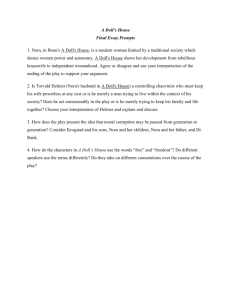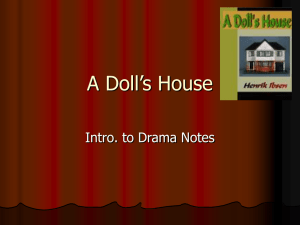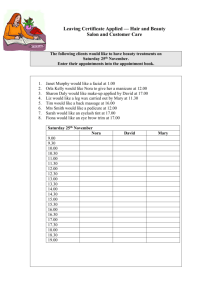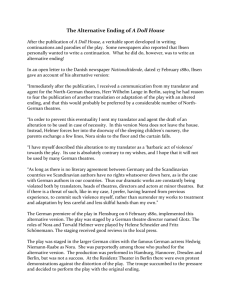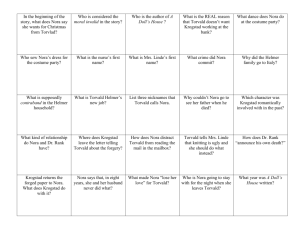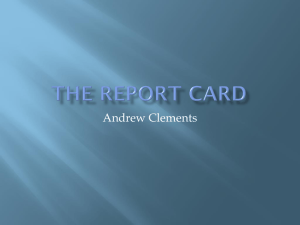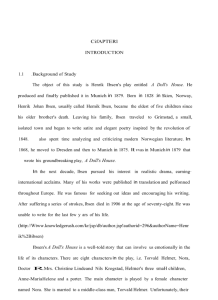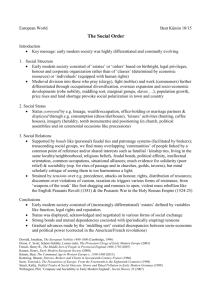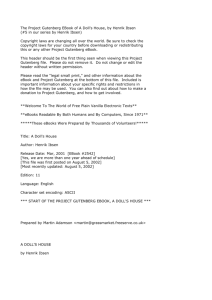A Doll's House Act I Study Guide: Questions & Analysis
advertisement
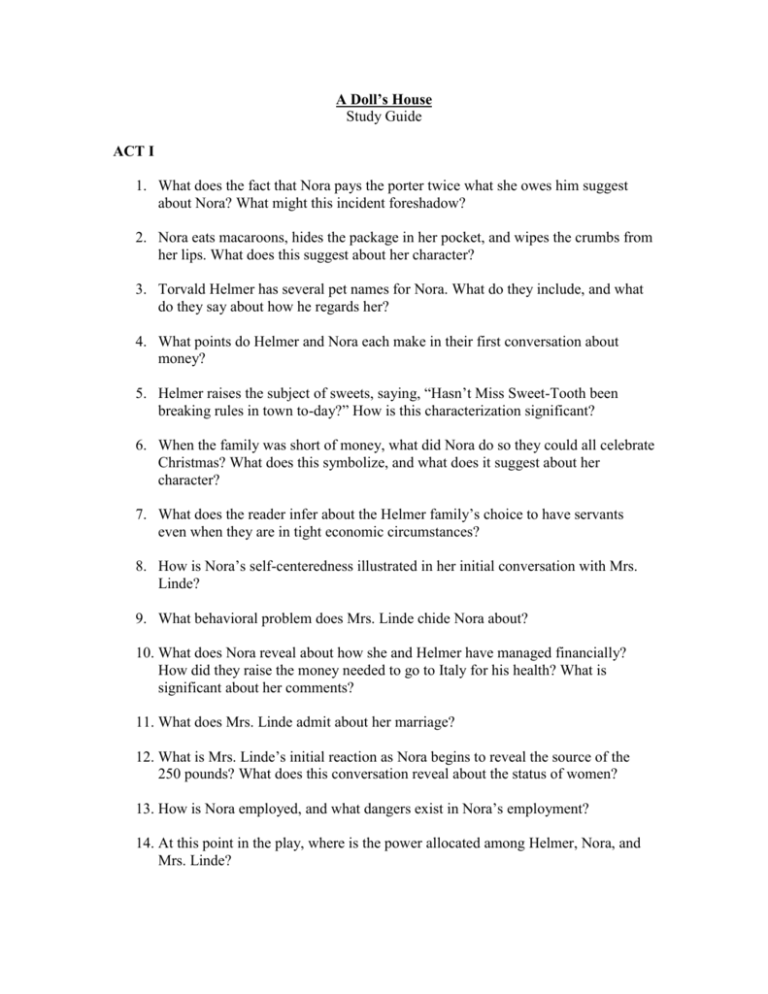
A Doll’s House Study Guide ACT I 1. What does the fact that Nora pays the porter twice what she owes him suggest about Nora? What might this incident foreshadow? 2. Nora eats macaroons, hides the package in her pocket, and wipes the crumbs from her lips. What does this suggest about her character? 3. Torvald Helmer has several pet names for Nora. What do they include, and what do they say about how he regards her? 4. What points do Helmer and Nora each make in their first conversation about money? 5. Helmer raises the subject of sweets, saying, “Hasn’t Miss Sweet-Tooth been breaking rules in town to-day?” How is this characterization significant? 6. When the family was short of money, what did Nora do so they could all celebrate Christmas? What does this symbolize, and what does it suggest about her character? 7. What does the reader infer about the Helmer family’s choice to have servants even when they are in tight economic circumstances? 8. How is Nora’s self-centeredness illustrated in her initial conversation with Mrs. Linde? 9. What behavioral problem does Mrs. Linde chide Nora about? 10. What does Nora reveal about how she and Helmer have managed financially? How did they raise the money needed to go to Italy for his health? What is significant about her comments? 11. What does Mrs. Linde admit about her marriage? 12. What is Mrs. Linde’s initial reaction as Nora begins to reveal the source of the 250 pounds? What does this conversation reveal about the status of women? 13. How is Nora employed, and what dangers exist in Nora’s employment? 14. At this point in the play, where is the power allocated among Helmer, Nora, and Mrs. Linde? 15. How does Nora manage the conversation when she asks her husband to give Mrs. Linde a job? 16. Why is Nora’s management of the conversation significant? 17. Why does Ibsen insert a scene of Nora romping with her children? 18. What is ironic about the following conversation? Nora: When anyone is in a subordinate position, Mr. Krogstad, they should really be careful to avoid offending anyone who—who— Krogstad: Who has influence? 19. Why did Nora forge her father’s signature? 20. Why does Ibsen show Nora telling her children that she cannot play with them? 21. Why does Helmer scold Nora when he returns? 22. Why does Ibsen include the conversation between Helmer and Nora about the fancy dress ball? 23. What is ironic about Krogstad’s crime? 24. What does Helmer say about mothers, and why is this ironic? 25. Why does Nora reject the return of her children at the end of this act?
